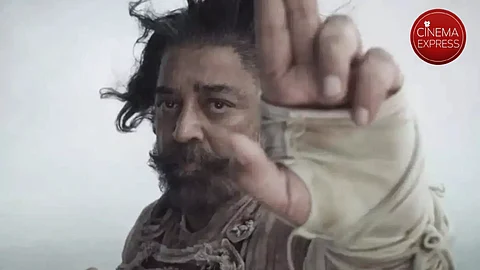

Although two weeks have passed after the release of Kamal Haasan's latest film Thug Life, directed by Mani Ratnam, the gangster action film continues to face a ban in Karnataka following the actor's controversial remarks on the Kannada language. Seeking response to the petition filed on the film's safe and unobstructed release, the Supreme Court asked the Karnataka government to take action against those who have issued threats and taken to violence in the state against the makers of the film.
A Vacation Bench headed by Justices Prashant Kumar Mishra and Manmohan sought responses of Karnataka’s Chief Secretary, Principal Secretary (Home) and Director General of Police in the matter.
The writ petition was filed by Bengaluru's M Mahesh Reddy who said the film has been prevented from screening in the state despite a valid certification from CBFC. Advocate A Velan represented the petitioner and noted that these actions amount to restriction of right to freedom of speech and expression under Article 19(1)(a) of the Constitution.
Velan argued that the ban which was a result of continuous threats of violence, "stems not from any lawful process but from a deliberate campaign of terror, including explicit threat of arson against cinema halls, incitement of large-scale violence targeting linguistic minorities."
“This reign of intimidation is a direct, flagrant violation of the Fundamental Rights to Freedom of Speech and Expression (Article 19(1)(a)) and to Practice any Profession (Article 19(1)(g)). More seriously, it is a calculated attack on the secular fabric and public order of the State,” stated the petition.
The petition also probed about the state government's failure to maintain law and order in the state and protect constitutional freedom. The petition has been posted for further hearing on Tuesday (June 17).
Amid controversy sparked by Kamal Haasan’s comments on the roots of the Kannada language, the production house Raaj Kamal Films International approached the Karnataka High Court requesting security measures. The court, however, recommended that Haasan offer an apology—a suggestion the actor-politician declined to accept.
Meanwhile, the film which reunites Mani Ratnam and Kamal Haasan after 38 years, has been receiving mixed reviews from audiences and critics.